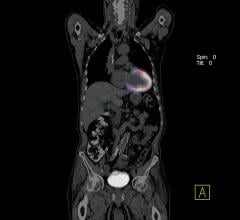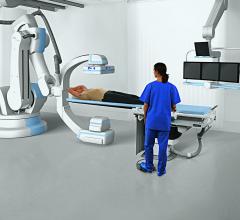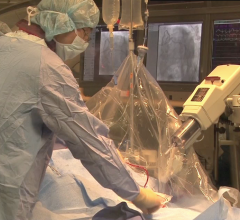Depression has been known to be associated with poor cardiovascular outcomes. But if patients who are depressed attend cardiac rehabilitation after heart surgery, their risk of death is significantly reduced, according to a new study.
Atrial fibrillation patients who use warfarin to lower risk of stroke are at higher risk of developing dementia than patients who use warfarin for non-atrial fibrillation conditions, according to a new study from the Intermountain Medical Center Heart Institute.
Computational Signal Detection (CSD) Laboratories LLC announced the publication of data in support of the clinical utility of its eMurmur computer-aided auscultation (CAA) platform for early and ongoing heart-health screening of children.
Providing exceptional cardiovascular care for patients to achieve the best possible outcomes is the number one goal for ...
Medtronic plc has received U.S. Food and Drug Administration (FDA) approval for the Claria MRI Quad Cardiac Resynchronization Therapy Defibrillator (CRT-D) SureScan device for patients with heart failure. The Claria MRI CRT-D is approved for scanning in both 1.5 and 3 Tesla (T) magnetic resonance imaging (MRI) machines, and features EffectivCRT, a new algorithm that automatically tailors the therapy to individual patients by adjusting pacing rates.
Many people who experience chest pain but don’t have a heart attack breathe a big sigh of relief when a stress test comes back negative for blockages in their blood vessels. But a new study by cardiac researchers at the Intermountain Medical Center Heart Institute in Salt Lake City found they may not be off the hook after all.
Two differing blood clot prevention medications are just as safe and effective for patients undergoing percutaneous coronary intervention (PCI), according to a new study.
Cardiac positron emission tomography (PET) is growing in popularity among cardiologists because it provides the ability ...
Atrial fibrillation patients with a prior history of stroke who undergo catheter ablation lower their long-term risk of a recurrent stroke by 50 percent, according to new research from the Intermountain Medical Center Heart Institute.
William Abraham, M.D., FACC, discusses advances in heart failure device treatment technologies at the Transcatheter ...
Siemens Healthineers announced that University of Iowa Stead Family Children’s Hospital in Iowa City is the first facility in the United States to install the company’s Somatom Drive computed tomography (CT) system. This new high-performance scanner joins the Somatom Force and Somatom Definition Flash in the dual source segment of the company’s CT portfolio.
When performing radiofrequency (RF) ablation to treat cardiac arrhythmia, medical professionals must balance the safety ...
Barco recently announced that Nexxis, its IP-based OR imaging management platform, is now operating in over 1,000 operating rooms worldwide.
Siemens announced it intends to further develop its healthcare business, Siemens Healthineers, and give it even greater flexibility in implementing its growth plans. To this end, the company is planning to publicly list its healthcare business.
November 10, 2016 — A Henry Ford Hospital cardiologist is pioneering a promising new procedure to improve the success of ...
Change Healthcare Cardiology Hemodynamics is an integrated hemodynamic monitoring system for monitoring vital signs and ...
Siemens Healthineers announced U.S. Food and Drug Administration (FDA) 510(k) clearance for a hand-held portable coagulation analyzer. The Xprecia Stride Coagulation Analyzer delivers fast, reliable Prothrombin Time/International Normalized Ratio (PT/INR) testing for point-of-care monitoring and management of oral anticoagulation therapy with warfarin, a vitamin K antagonist.
NeoChord Inc. announced the first use of its DS1000 System in the United States as it enrolled the first patient in the RECHORD Trial.
Current ACCF/AHA guidelines recommend fibrinolysis (FL) as the preferred reperfusion strategy for ST-segment elevation myocardial infarction (STEMI) patients with expected delays of > 120 minutes from first medical contact to percutaneous coronary intervention (PCI). The guidelines recommend this be followed by transfer to a PCI center with angiography/PCI within 3-24 hours. However, assessment of reperfusion prior to angiography may not be accurate based on clinical and electrocardiogram (ECG) criteria alone. Recent data suggested increased recurrent ischemic events within the first 24 hours. The aim of this study, which was conducted from 2003-2015, was to assess the safety of very early PCI (< 3 hours) following FL.


 November 15, 2016
November 15, 2016
















